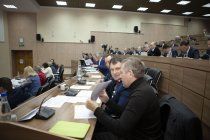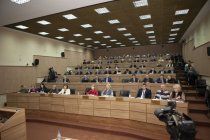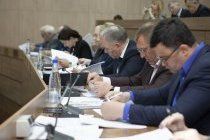 Русский
Русский English
English-







About payments and debts
Consumers of public services receive it regularly (the issue of quality is a separate topic), but they are not being paid for in time. This, according to state authorities, concerns 5% of the population. They created the nearly 160 million debt to utility providers. Representatives of the government and deputies of the Supreme Council have begun a systematic solution of the old problem of non-payments.
The deputies in the framework of the plenary session considered the initiative of the government, amending the Housing Code. It is proposed to increase the amount of penalties for late payment, by analogy with the legislation of the Russian Federation in order to increase the level of payment for housing and communal services. According to the law-in-draft, the size, starting from the 31st day, will be 1/300 of the refinancing rate of the Pridnestrovian Republican Bank of the amount owed for each day of delay. Starting from the 91st day, the amount of the interest will increase to 1/130. For a debt of one thousand rubles, it is 23 kopecks per day, or 6 rubles per month.
In the opinion of the legislator, this disciplining measure will allow the utility infrastructure to be maintained in proper technical condition and, as a result, life-supporting enterprises should provide quality services to subscribers. According to the people's deputy, its real state reflects the situation with every now and then tearing collector on one of the central streets of Bendery.
Without denying the existence of the problem, the need to combat defaulters, a number of parliamentarians called on energy supplying and housing and utility organizations to more actively work to collect debts by going to court to obtain the resulting debt, to take into account the social status of payers and their incomes, to use delaying mechanisms and installment restrictions on the departure of debtors.
The most remarkable thing is that the majority of those who in principle do not pay for the utility services provided to them are people who are not at all socially vulnerable.
We will also inform that the Supreme Council received a legislative initiative of the government, in which it was proposed to increase the statute of limitation from 3 to 5 years to collect debts for utilities from non-payers. This is a continuation of the very systemic work on debt collection initiated by state bodies.
The result of the ensuing debate on the debt topic was a vote: 23 people's elects voted for the adoption of law-in-draft that would correct the norms of the Housing Code.




